Ridenour Edges Jeffcoat, Thorpe in Epic 2025 World Triathlon Cup in Napier
Ridenour claims gold with a final surge, Jeffcoat takes silver, and Thorpe powers to bronze in a thrilling sprint finish at the Napier World Triathlon Cup.
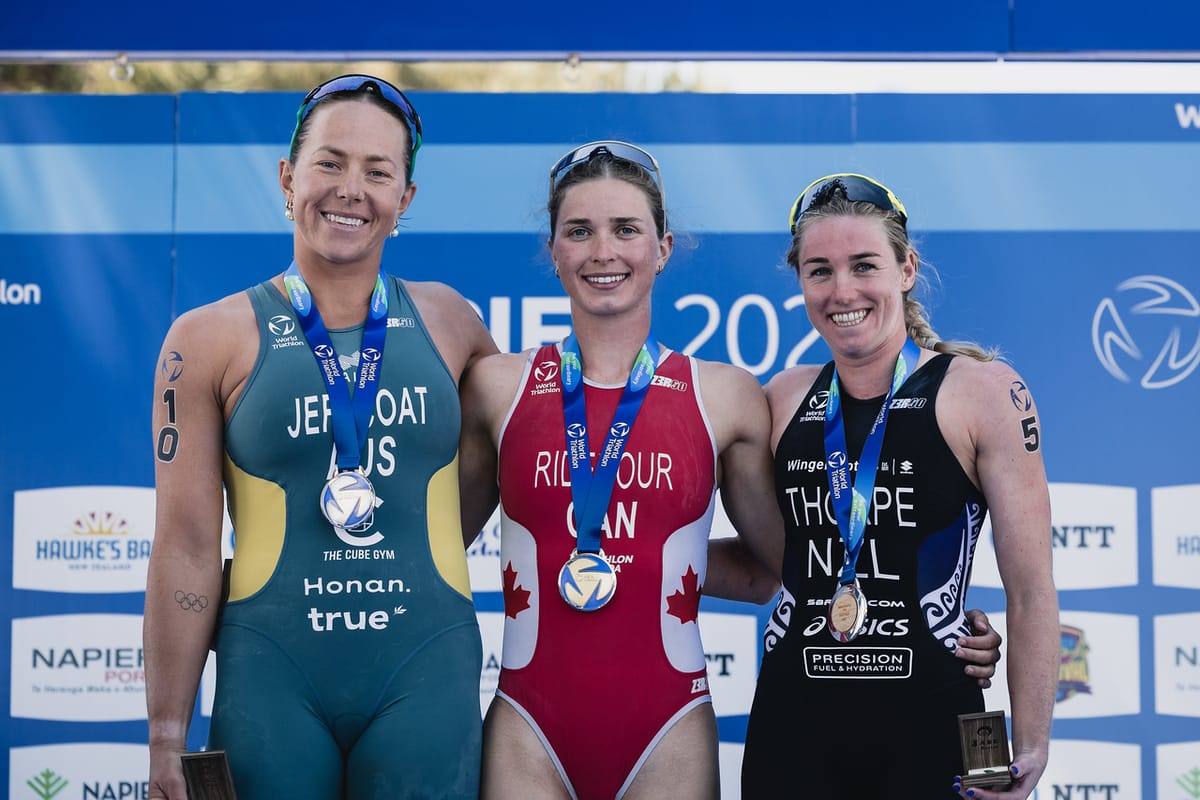
They sprinted down the blue carpet with nothing left to give, and the result was an unforgettable finish that silenced even the most skeptical onlookers. On a sun-drenched day in Napier, New Zealand, the World Triathlon Cup roared to life with sixty minutes of lung-searing effort and brilliant tactical manoeuvres. Local onlookers watched three women—Canada’s Desirae Ridenour, Australia’s Emma Jeffcoat and New Zealand’s Ainsley Thorpe—lock into a final shoulder-to-shoulder confrontation that no one could tear their eyes from. When the dust settled, Ridenour proved that raw power and a timely surge can overturn any prediction.
Napier offered near-perfect racing conditions, with the Pacific Ocean shimmering under the midmorning sun and a mild offshore breeze holding temperatures in the mid-20s Celsius. This event belongs to the World Triathlon Cup, a series that awards crucial ranking points toward international starts—points that can make or break a season for every woman on the start line.
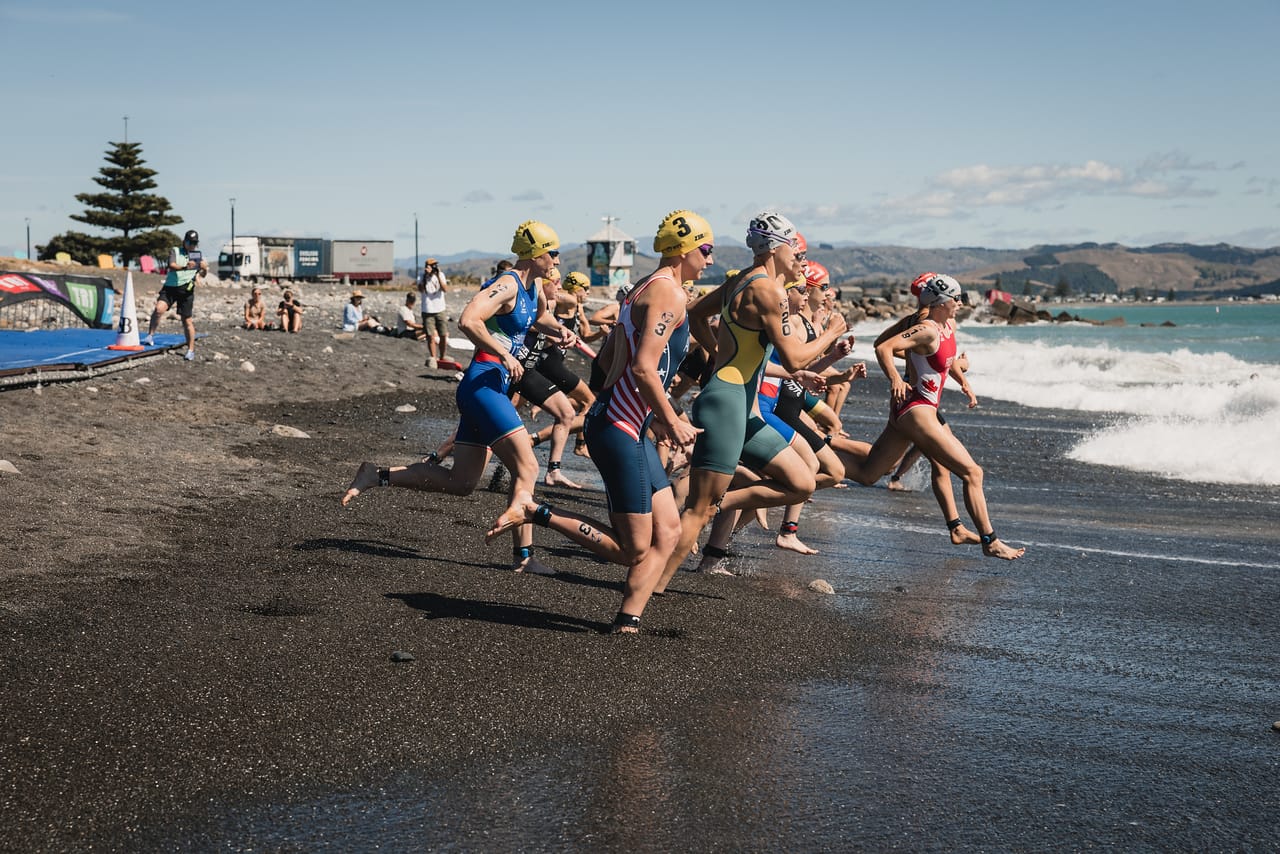
Out of the 27 who dove into the water, several names stood out on paper, including Tokyo 2020 Olympian Emma Jeffcoat, hungry to return to the podium after years of battling a femoral stress fracture, ankle reconstruction, and a blood clot. She was joined by her fellow Australians—among them Zoe Clarke, Ellie Hoitink, Richelle Hill, and Sian Munks—as well as a strong Kiwi cohort led by Ainsley Thorpe, Eva Goodisson, and Brea Roderick. Then there was the Italian duo of Verena Steinhauser and Ilaria Zane, plus a mix of North Americans including Desirae Ridenour of Canada and Erika Ackerlund of the United States.
Right from the start, Jeffcoat’s trademark swim-bike strength was on display. She and Clarke pushed the pace in the water, but Ridenour stuck close, showcasing improved open-water form. Thorpe, Goodisson and Roderick made sure the Kiwis stayed relevant, emerging from the water within a few seconds. Their transitions proved decisive. Stripping off goggles and racing across the soft sand, Jeffcoat and Clarke sprinted into T1 with Thorpe, Ridenour, Goodisson and Roderick in lockstep. Meanwhile, other contenders—like Steinhauser, Zane, and Ackerlund—found themselves a small step behind as they reached their bikes, already aware they would have to chase.
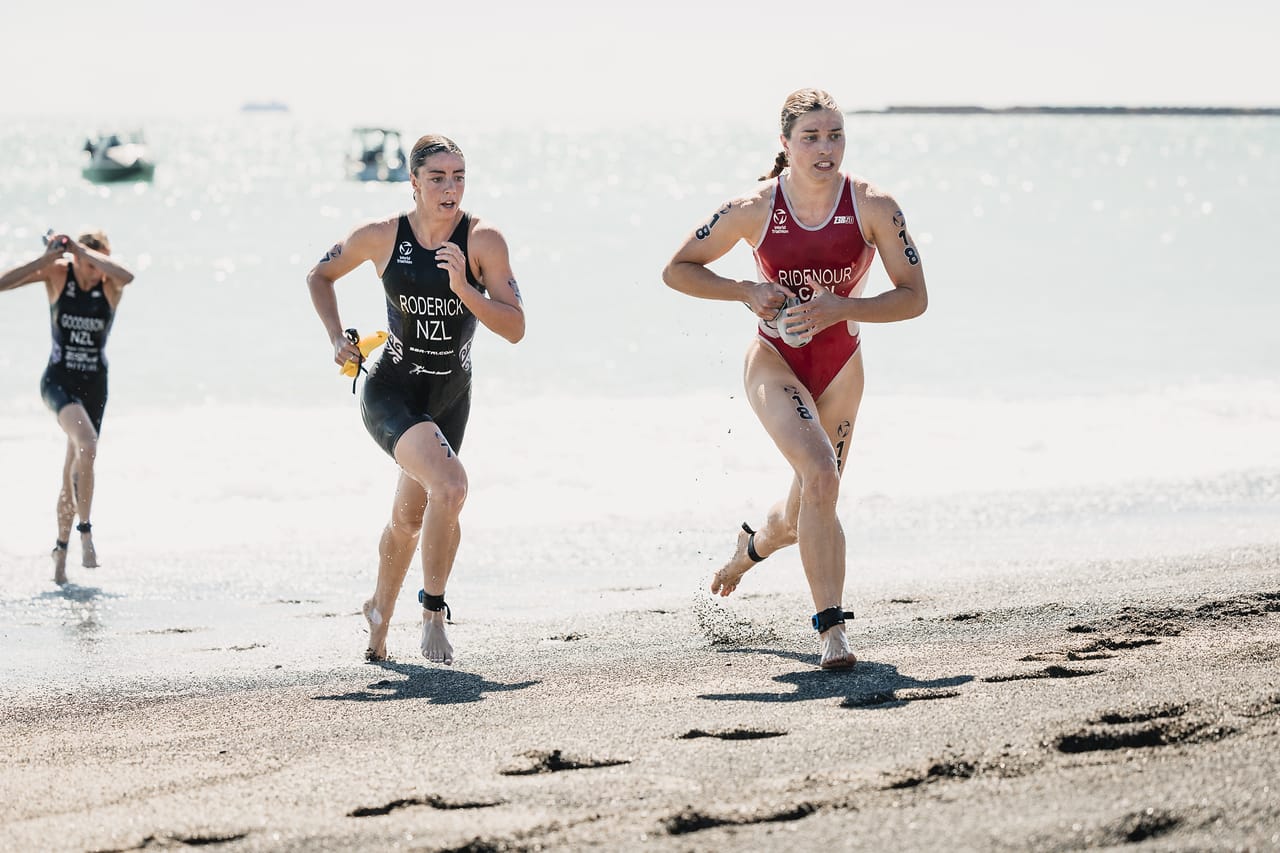
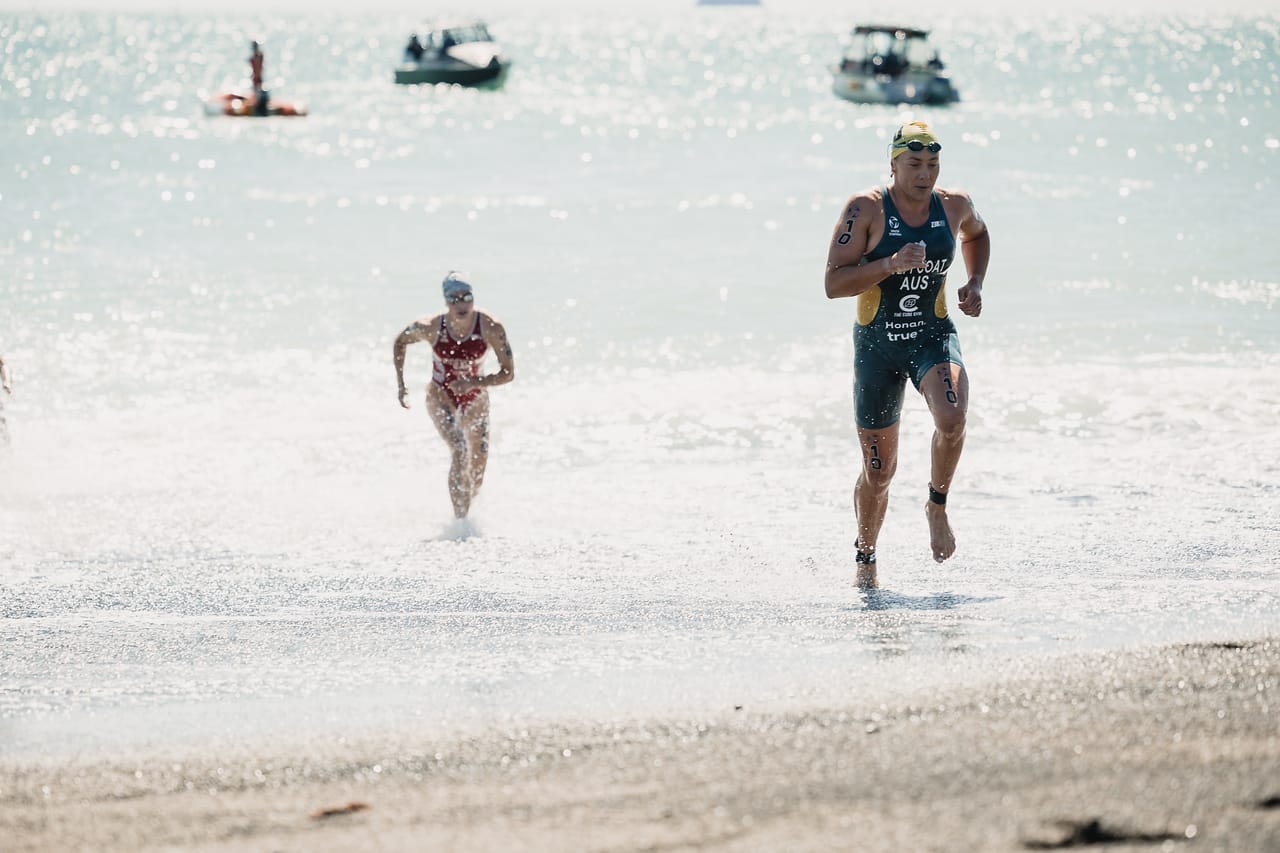
Once on the bike, the front six quickly showed their intent. Jeffcoat set a fierce tempo, aided by Ridenour and Clarke. Goodisson and Roderick worked hard, while Thorpe—known for her lethal run—sat in, content to conserve energy. That unity spelled trouble for the chase pack, where coordination lagged. Steinhauser, Zane, and Ackerlund tried pulling the group forward, but not everyone contributed at the same level, allowing the leaders to steadily stretch their advantage: 20 seconds, then 30, then nearly a full minute by the final lap. In sprint triathlon, a gap that large often proves insurmountable.
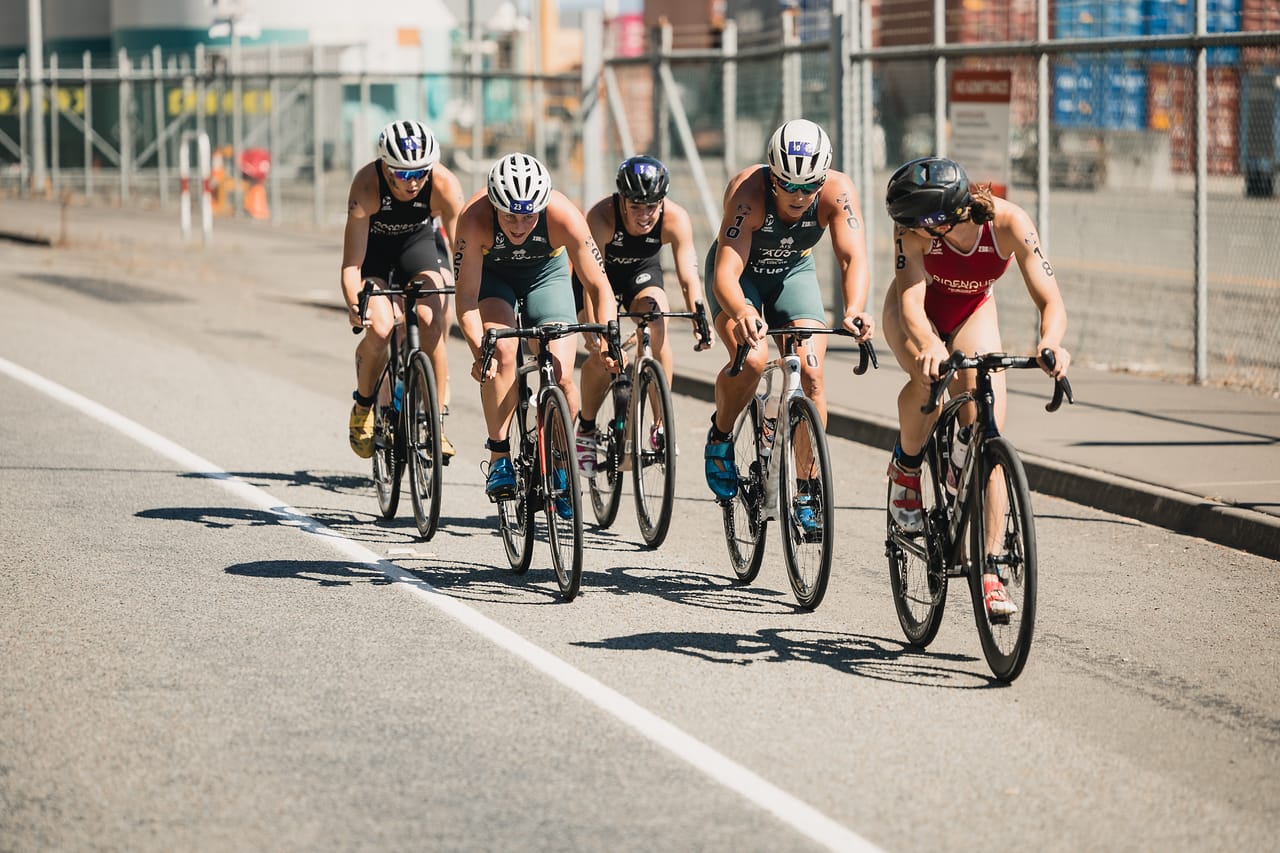
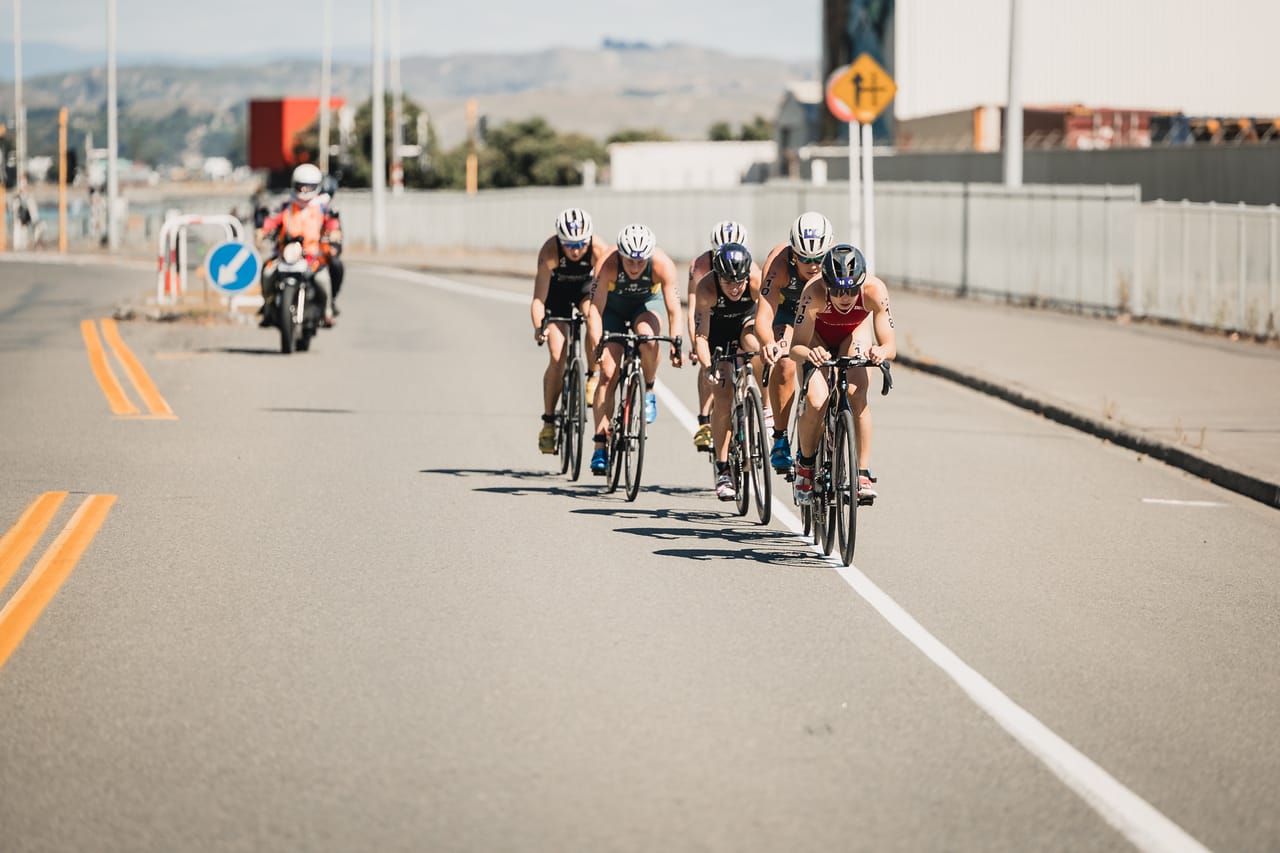
Heading into T2, the leading six had built what seemed like a winning cushion. Dismounting, Desirae Ridenour made a swift change, racking her bike and darting onto the run course in a flash. Jeffcoat followed, fresh off a punishing yet efficient bike effort and Thorpe hustled after them, eager to use her run strength before the Napier crowd. Zoe Clarke, Eva Goodisson, and Brea Roderick arrived seconds later—close enough to maintain hope but far enough back that bridging the gap would require a near-perfect five kilometers.
Out on the run, Ridenour, Jeffcoat, and Thorpe immediately broke into a three-way duel. Goodisson hung a few seconds behind, fighting to close the gap. In the chase group, Steinhauser, Zane, and Ackerlund joined forces with Richelle Hill and others, hoping they could chip away at the leaders’ one-minute advantage. But every passing kilometer confirmed that this time, the decisive move had already happened on the bike.
With around 250 meters to go, Emma Jeffcoat surged, testing whether she truly had rediscovered her best gear. “I’ve been running well in training but sometimes it doesn’t translate and that’s really frustrating,” she would later explain. Yet on this day, it translated beautifully—until Desirae Ridenour found an even stronger finishing kick, slipping by to cross the line three seconds ahead. Thorpe tried to claw her way back into contention, buoyed by Kiwi fans lining the homestretch, but ended up third, proud yet aware she’d been out-sprinted.
Jeffcoat’s silver held special significance: it was her first World Triathlon Cup podium since 2019. “I am so over the moon,” she said. “I think everyone knows how hard it’s been the last six years. For so long I thought I would never get back on the podium… This race isn’t for me, it’s for everyone who thought they can’t do it and lost that self-belief. Honestly, just keep working, because when you keep showing up, magic can still happen.” She credited her trademark swim-bike aggression—and the fact that, at last, her run felt good again. “I back my sprint finish,” she added, “but Desirae was the better sprinter today, so kudos to her. I’m so stoked to take silver.”
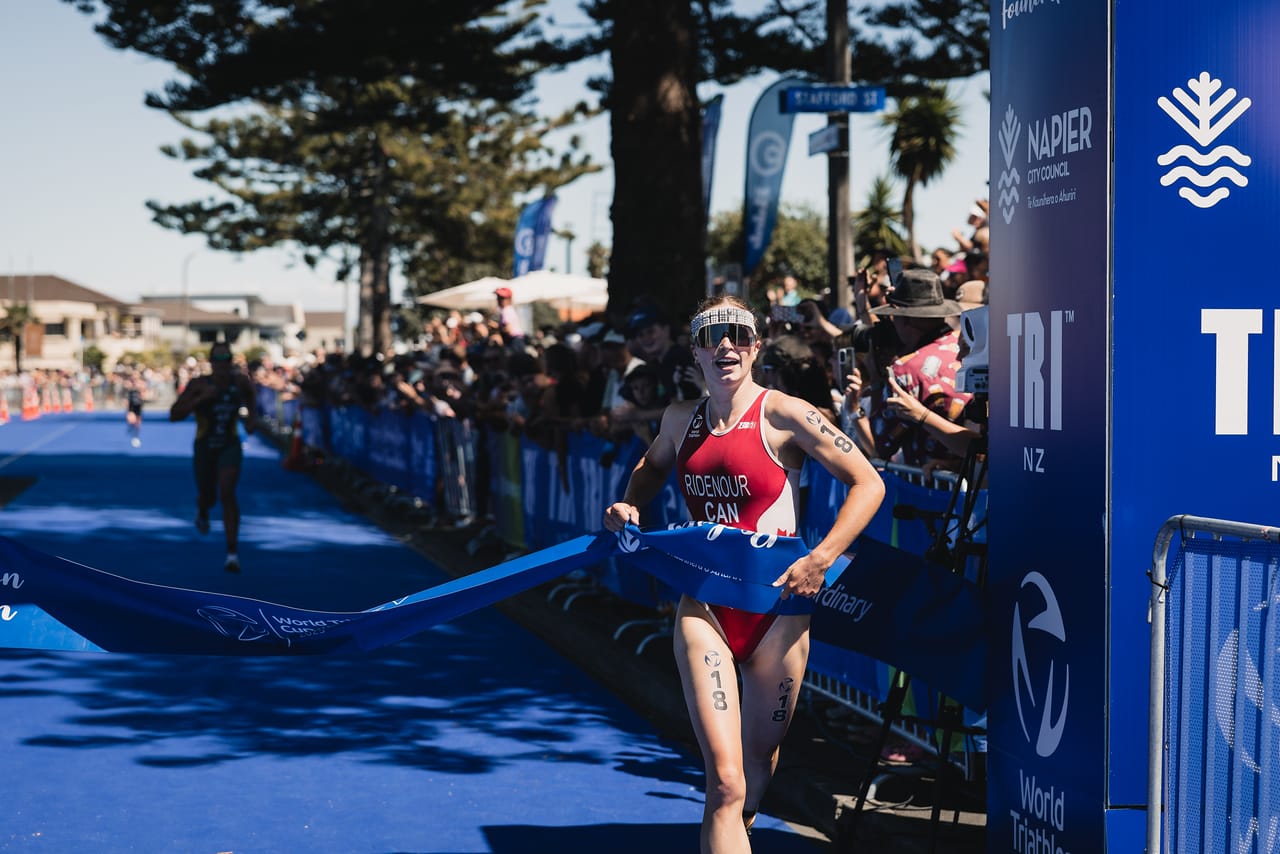
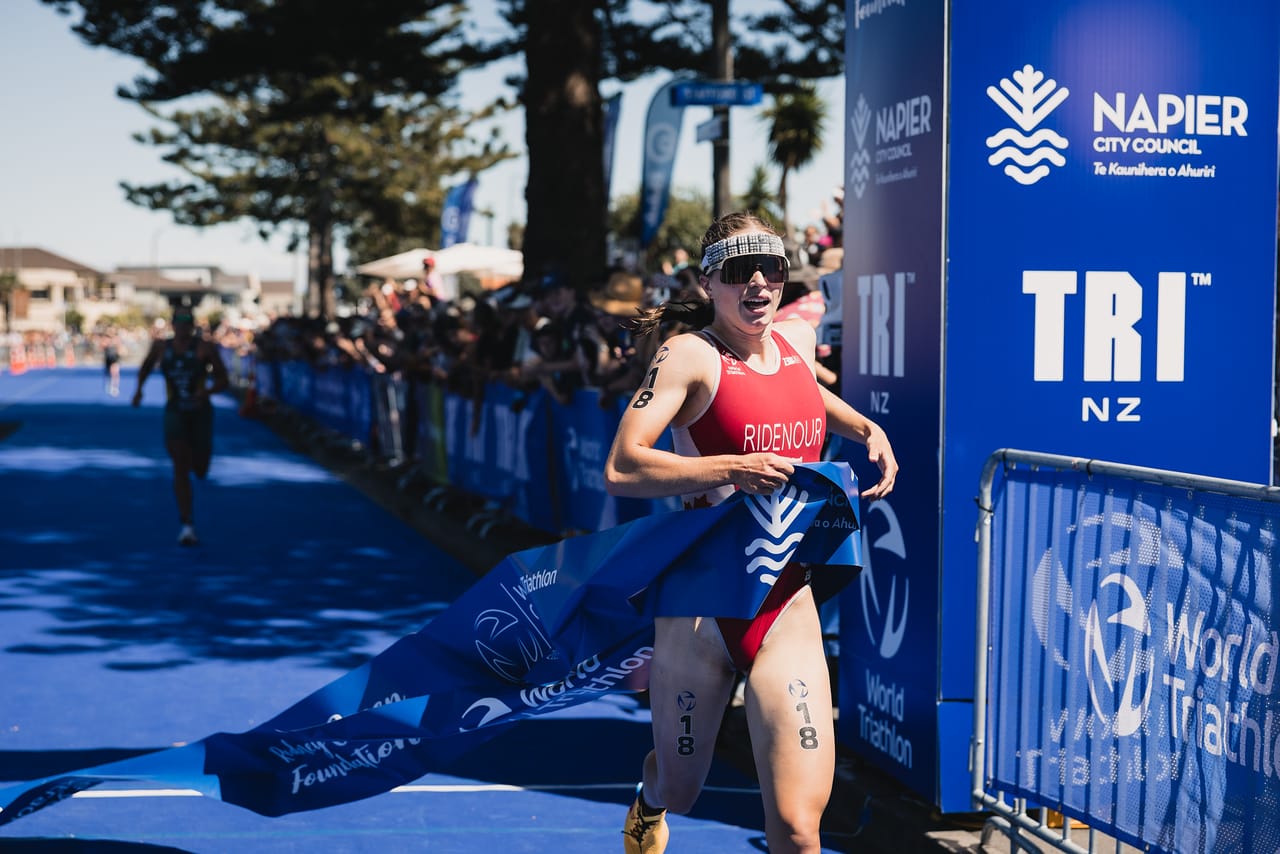
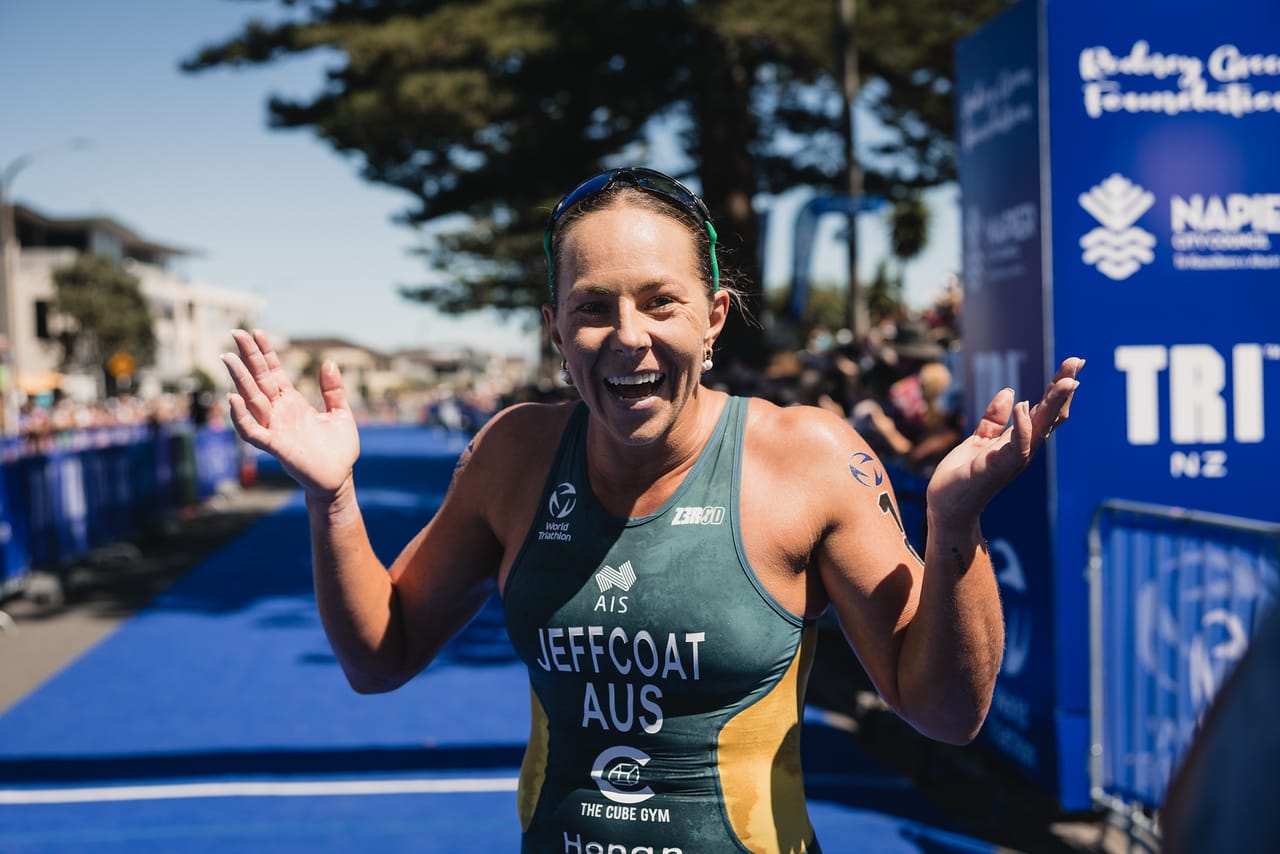
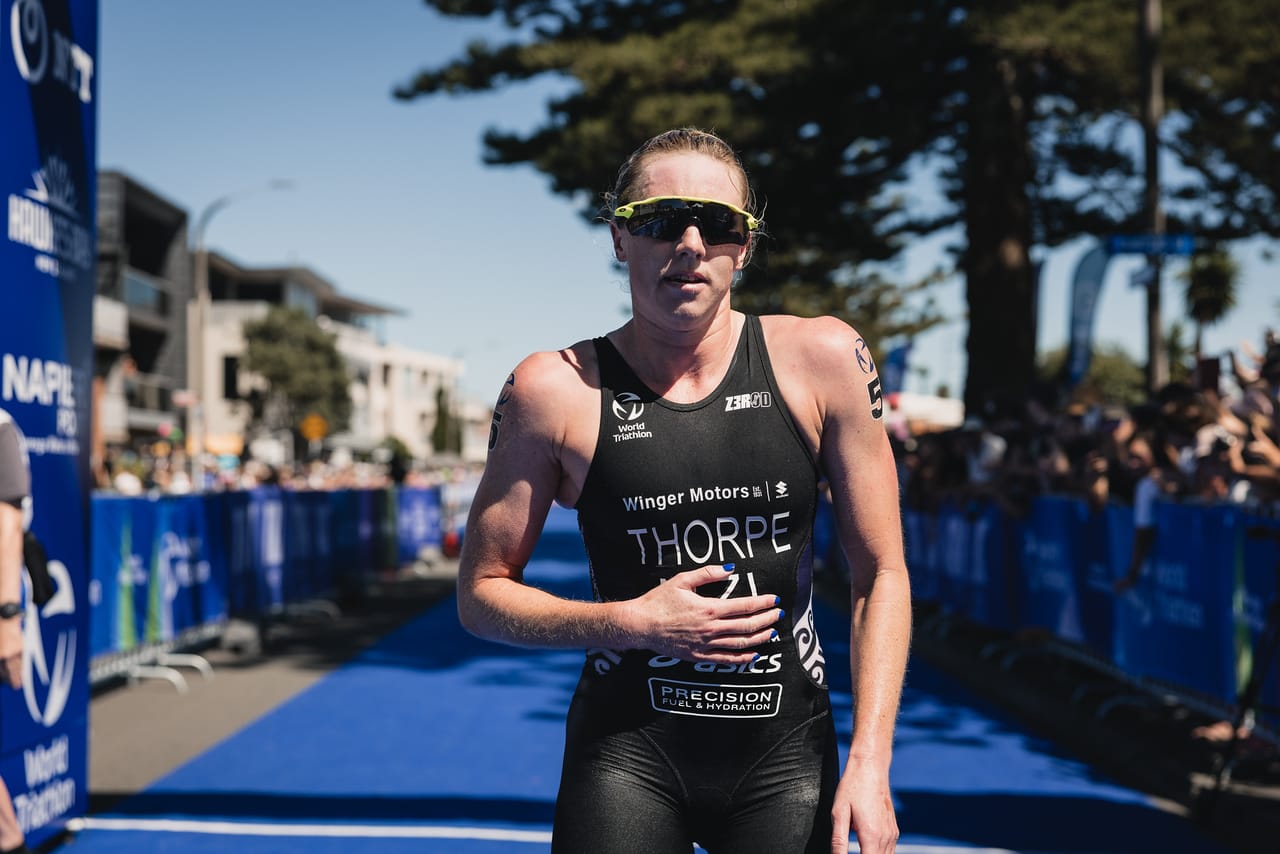
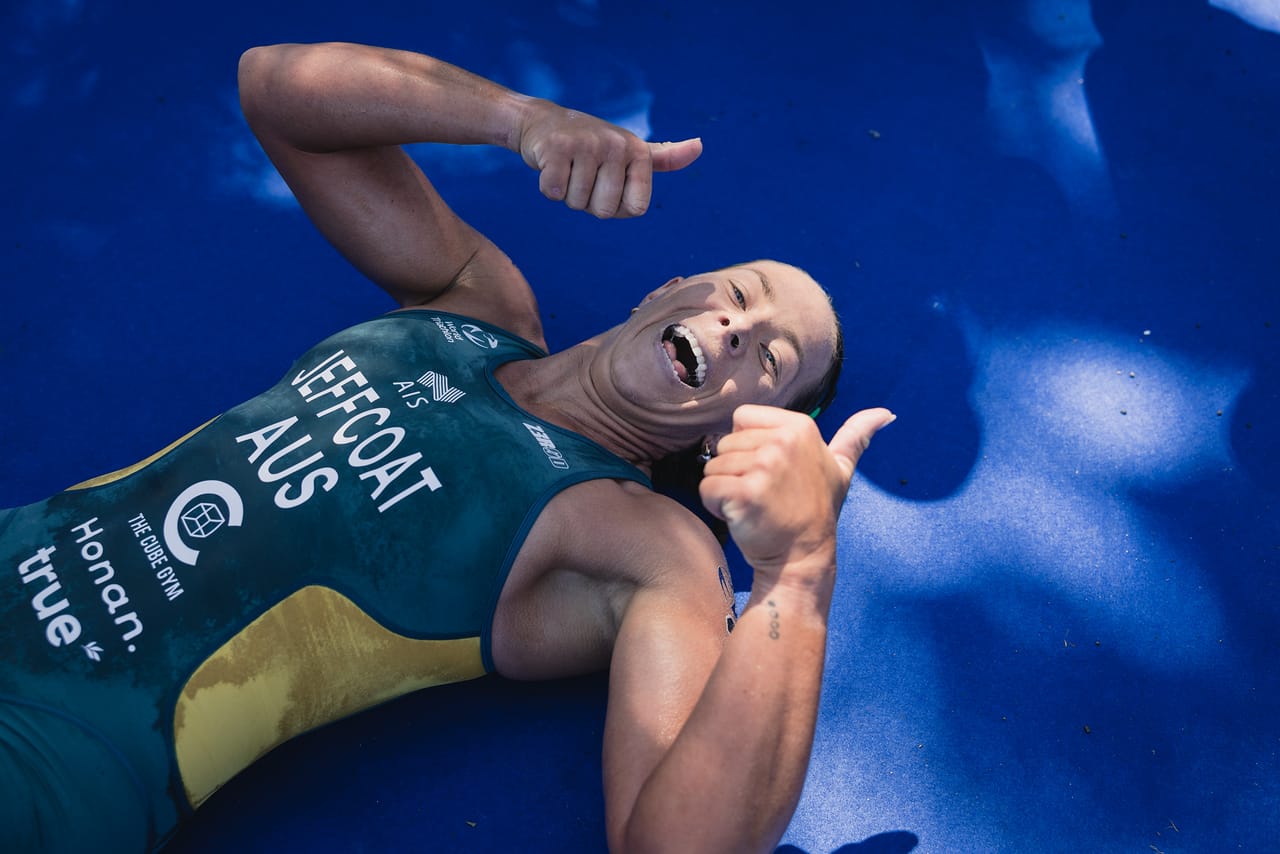
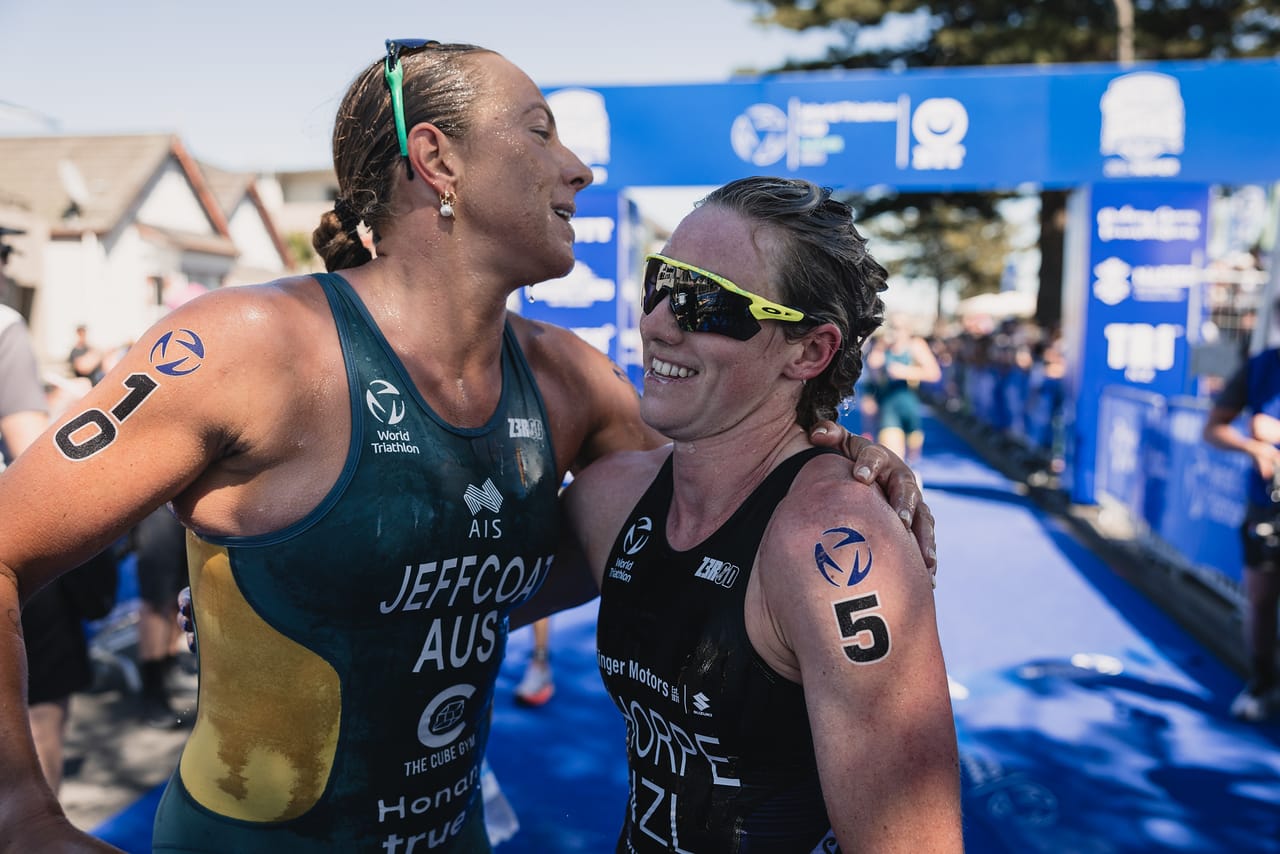
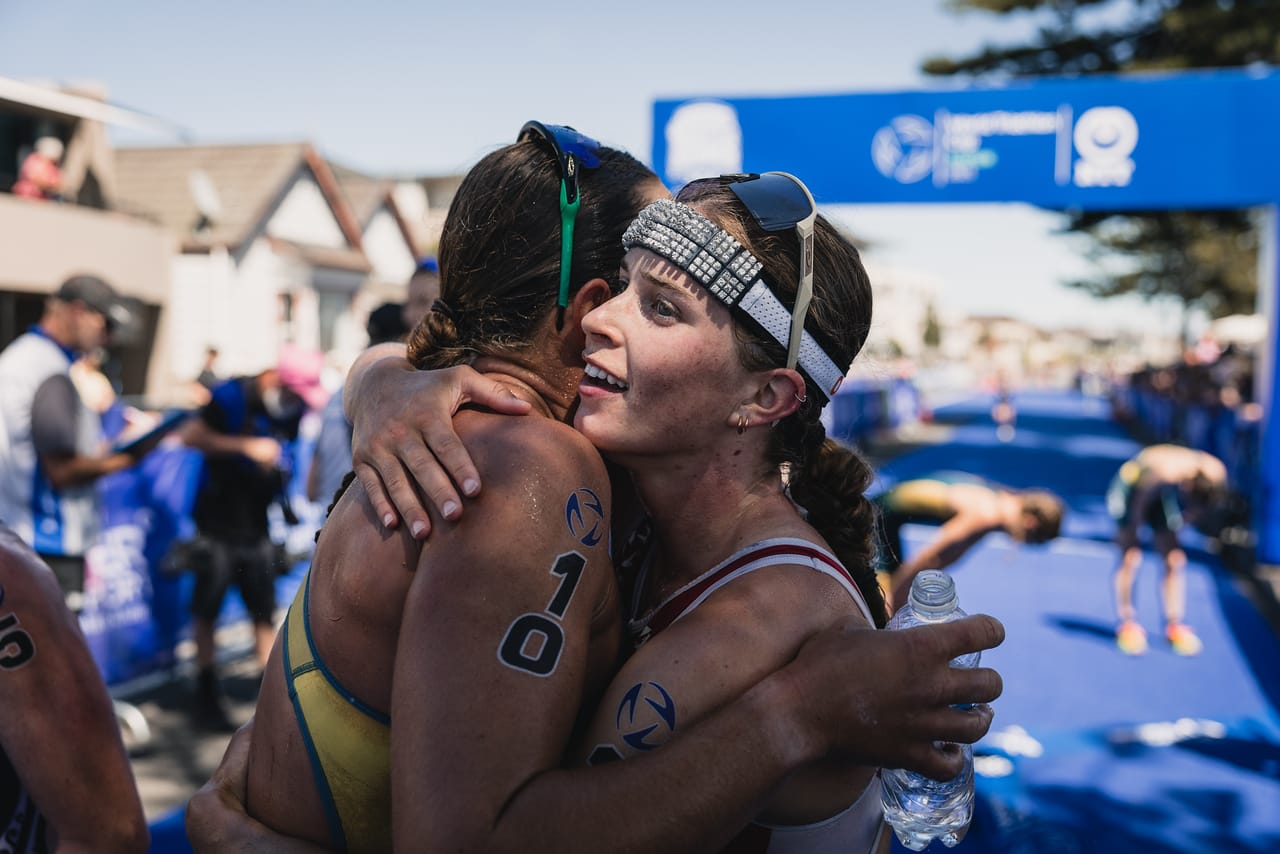
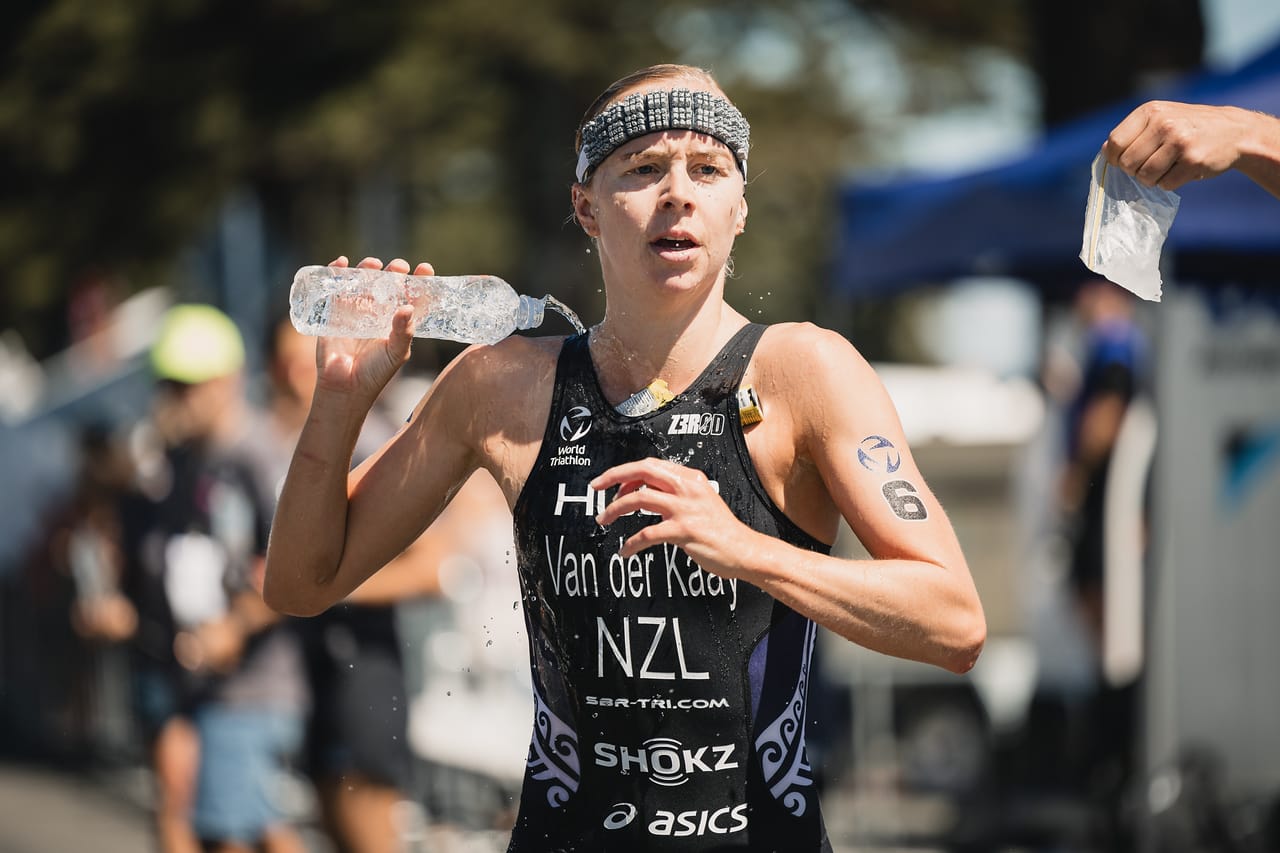
Australia’s depth showed in the chase pack as well, with Ellie Hoitink and Richelle Hill crossing in seventh and eighth. Sian Munks took 11th, Clarke finished 15th, and Aspen Anderson 18th—all strong World Triathlon Cup results. Charlotte Derbyshire and Charlotte Brown were not far behind, marking solid performances in an international field. But the day’s storyline belonged to that six-woman break. They seized the advantage early and never let up, proving that a focused front group will typically outmatch a scattered pursuit. Ridenour, Jeffcoat and Thorpe demonstrated exactly how to seal a race when each athlete is willing to do the work, then trust in their finishing speed.
Nothing in triathlon is ever guaranteed and on another course, a bigger chase might rally to erase the gap. But in Napier, the magic formula rested on turning a small lead into a winning margin. Ridenour ultimately cashed in with that final, decisive sprint; Jeffcoat reclaimed her spot on a Cup podium; and Thorpe gave the home crowd a medal to celebrate. Above all, they reminded everyone that in triathlon, as in life, if you hesitate when the moment demands action, you might just watch your best chance slip away—and these women never hesitated for a second.
| Pos | First Name | Last Name | Nation | Total Time |
|---|---|---|---|---|
| 1 | Desirae | Ridenour | CAN | 00:56:24 |
| 2 | Emma | Jeffcoat | AUS | 00:56:26 |
| 3 | Ainsley | Thorpe | NZL | 00:56:33 |
| 4 | Erika | Ackerlund | USA | 00:57:05 |
| 5 | Eva | Goodisson | NZL | 00:57:05 |
| 6 | Verena | Steinhauser | ITA | 00:57:12 |
| 7 | Ellie | Hoitink | AUS | 00:57:17 |
| 8 | Richelle | Hill | AUS | 00:57:18 |
| 9 | Erica | Hawley | BER | 00:57:26 |
| 10 | Ilaria | Zane | ITA | 00:57:45 |


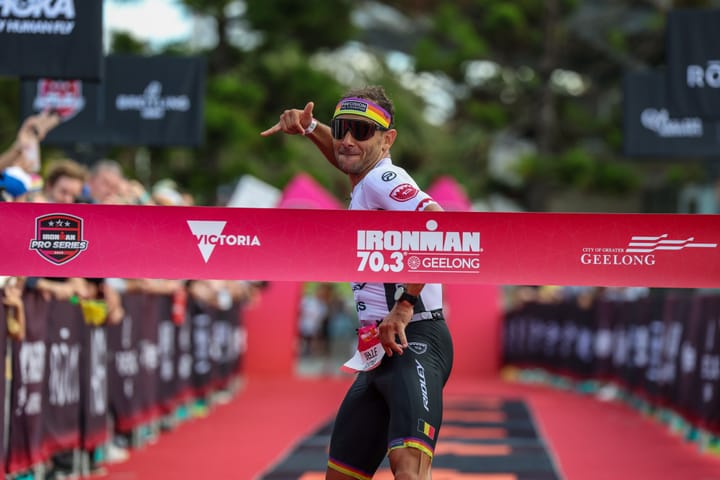
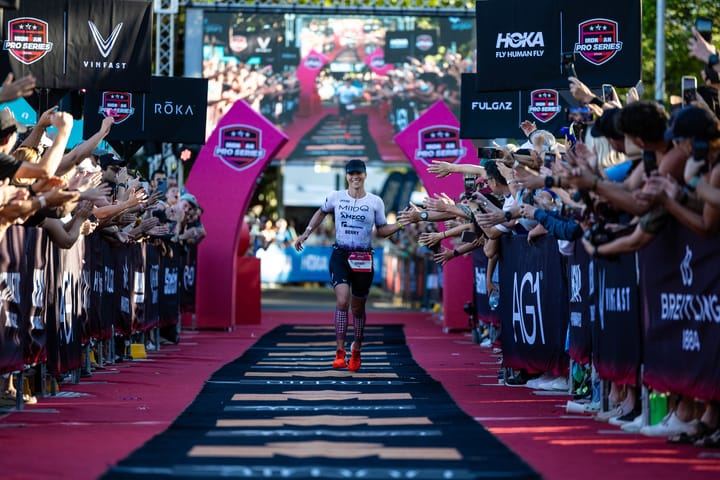
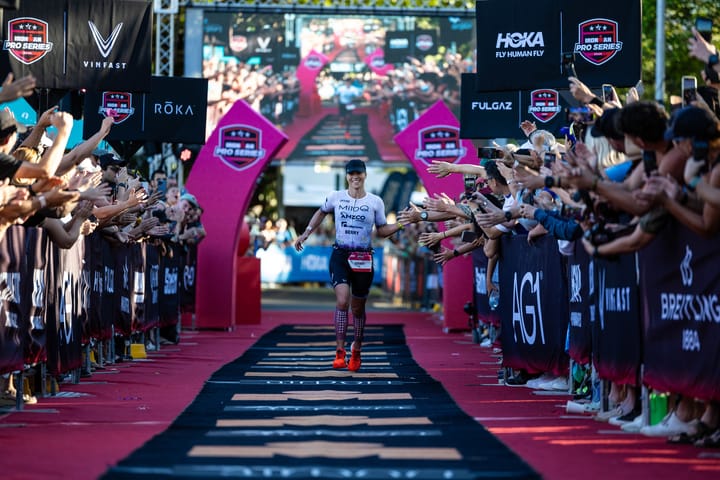
Comments ()